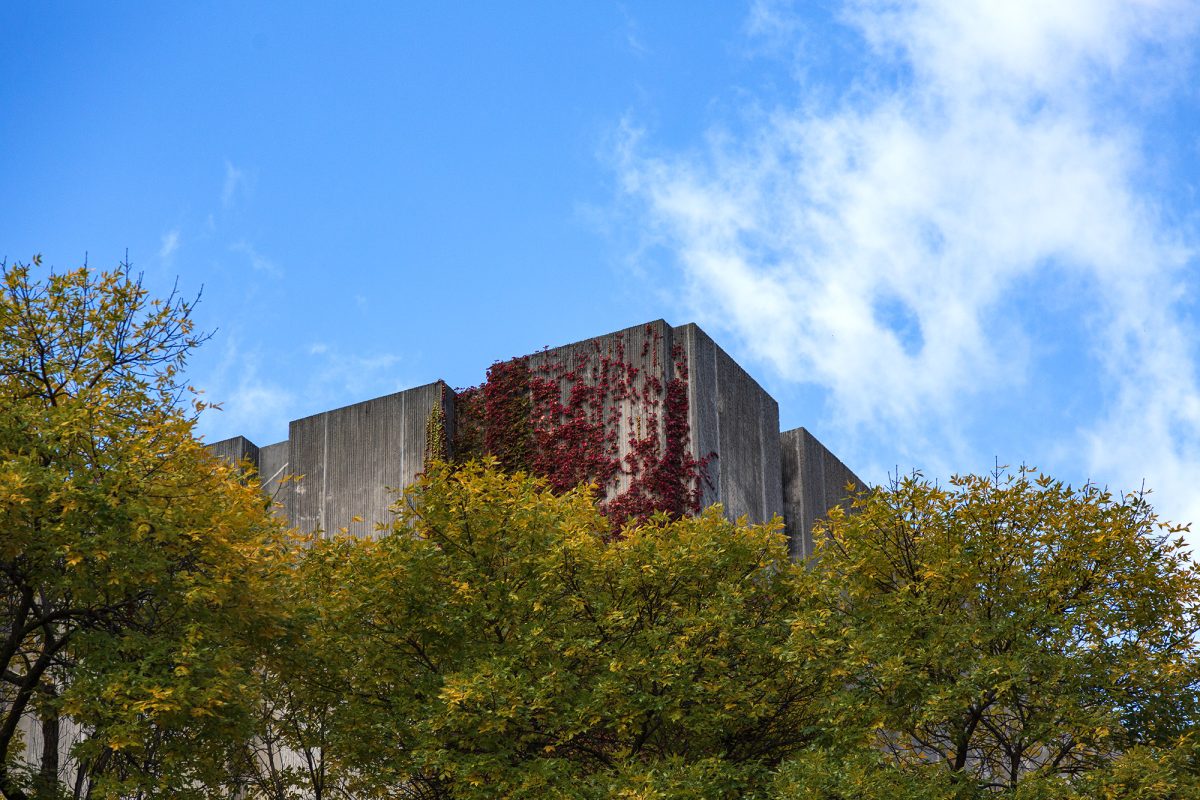The Joseph Regenstein Library saw approximately 1.1 million entries by UChicago community members in the 2022–23 school year and acts as the University’s primary facility for research and study. But, for most of the quarter, Regenstein, alongside other easily accessible communal study spaces on campus, closes by midnight. The Maroon spoke to students about how this affects access to University resources and potential for group study.
“There’s certain programs on the University computers, for example, Photoshop or certain coding languages that are very expensive… and not having 24-hour [entry] limits the [access] of, particularly, low-income students who may not be able to afford those yearly subscriptions,” second-year Alex Fuentes, the Undergraduate Student Government college council chair, said.
Fuentes also pointed out that Regenstein’s limited hours have led to a lack of adequate study space on campus, particularly for students taking time-consuming classes.
“An environment where students can safely study in a place that isn’t their dorm, where it may be less effective for them to study, less efficient for them to study, or they are just unable to study—we need these spaces for students who are taking academically rigorous classes at an academically rigorous school,” he said.
The study rooms found in individual dormitories seem to solve this issue for students like Hayden Jones, a second-year in the College who takes advantage of the Upper Judson study room in Burton Judson Courts on a regular basis.
“The study rooms are always open, so if it’s late, I usually just go there,” Jones said.
For others, Fuentes explained, these spaces are insufficient. Woodlawn Residential Commons, for example, has one large study room and three smaller rooms for the approximately 1,300 students it houses. First-year Anissa Wang added that, even in dorms where these rooms are abundant, students who live in different dormitories are unable to host study groups due to the two-person guest policy.
Likewise, most academic buildings, including Eckhart Hall, which houses both the Tea Room and the Eckhart Library, close at 5 p.m. Even during daylight hours, students like Wang find the options for communal study spaces lacking.
“I’ve had situations where I needed to do group work, and it’s very hard to find a space because the social parts of the Reg are always full, and besides that, we don’t have many options,” Wang said.
According to Wang, the lack of 24-hour spaces on campus affects more than just student study habits. “Not everybody has a lot of close friends in their dorm, so when it hits midnight and everybody leaves the Reg, it could leave some people isolated,” she said. “There’s no curfew here, so it’s just weird that we’re all just confined to our dorms, basically.”
The primary concerns regarding the 24-hour operation of Regenstein, according to Fuentes, are the financial strain from additional security and library staff, consistent electricity use, and the mental-health repercussions that may result from late-night studying.
Jones offered a different perspective, suggesting that, while the strong culture of academic achievement at UChicago can be unhealthy for students, students are ultimately responsible for their own habits.
“I think [at this school], people tend to be really competitive and overwork themselves a lot, and [the closing of Regenstein at midnight] kind of gives people a deadline,” he said. “But students can be trusted to manage their time, and if you leave the Reg open later, there won’t be too many people that are pushing themselves to unhealthy amounts.”
During the reading and final exam periods, Regenstein provides extended study hours until 4 a.m. However, in a statement to the Maroon, a University spokesperson said that “in the past, we have heard from students who want a quiet study space during these extended study hours, in addition to the Regenstein 1st floor collaborative space.”
To address this, according to the statement, the Mansueto Grand Reading Room will also offer extended study hours until 4 a.m. on a pilot basis during reading and final exam periods for winter and spring quarter.
“As Regenstein usage statistics show that demand for study space drops sharply after 2:30 a.m., the 4:00 a.m. closure effectively addresses the vast majority of the observed need,” the statement concluded.










IR / Feb 25, 2025 at 2:00 pm
There is no reason not to allow 24/7 access to the libraries. My much much smaller undergrad college was able to accommodate this. They just had a rule that nobody was allowed to buzz in after 11pm, so that the groups already in the spaces could remain and work.
This is especially annoying for graduate students, who don’t have dorms they can fall back to.
Aaron Wineberg (AB 2024) / Jan 28, 2025 at 7:13 pm
Agreed! I am an alum who served on USG for a few years and argued for this with some success. Most other top universities have at least some 24/7 space for students. Students depend on the library for a quiet space to get work done, have reliable access to wifi, and to socialize. It’s a loss to the UChicago community if we do not have at least some library open.
I managed to pass a resolution on USG to call for 24/7 spaces and the library director has now permanently extended hours during exams, but much more is needed. I hope your article will help get more attention to this important student life concern.
No. / Jan 28, 2025 at 2:43 pm
Opinion piece, not a news article. Do better.